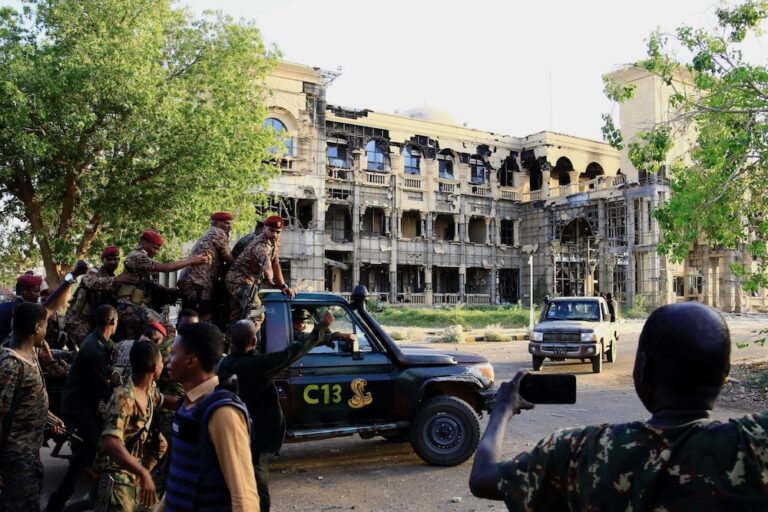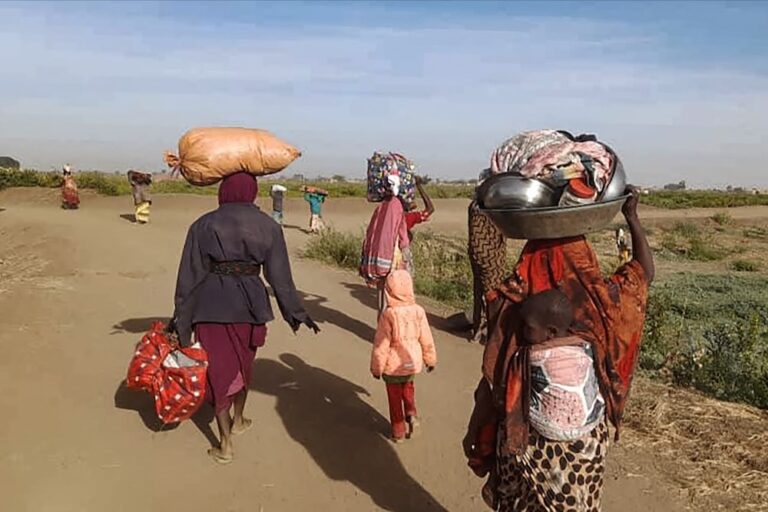(RSF/IFEX) – In a letter to Minister of the Interior Abdul-Rahim Mohammed Hussein, RSF protested the two-day suspension imposed on the English-language daily “Khartoum Monitor”. “It is the second time in less than one month that the Sudanese authorities have banned ‘Khartoum Monitor’ when it writes about the conflict between the country’s north and south,” […]
(RSF/IFEX) – In a letter to Minister of the Interior Abdul-Rahim Mohammed Hussein, RSF protested the two-day suspension imposed on the English-language daily “Khartoum Monitor”. “It is the second time in less than one month that the Sudanese authorities have banned ‘Khartoum Monitor’ when it writes about the conflict between the country’s north and south,” said Robert Ménard, the organisation’s secretary-general. “The newspaper has become the pet peeve of the governement, which uses any pretext to muzzle it. We ask you put an end to this harassment,” he added.
According to information collected by RSF, on 12 October 2001, the Sudanese authorities suspended the country’s only English-language daily, “Khartoum Monitor”, for two days. The National Press and Publications Council (a body directly accountable to the president, which has full powers to suspend or ban newspapers or fine publishers), called the newspaper’s management to inform them that the daily could not publish on 12 and 13 October. In a 7 October article, “Khartoum Monitor” reported on the Southerners’ displeasure following comments by presidential advisor Ghazi Salah El Din about the rejection of a self-determination process in south Sudan, which has been at war with the country’s north since 1983.
The “Khartoum Monitor” is famous for its criticism of government policies, especially concerning the country’s south. The newspaper was already banned for three days, on 11, 12 and 13 September, by order of the National Press and Publications Council. The order followed the newspaper’s publication of articles in August and September which were judged to be “harmful” to relations between the country’s north and south. Journalists working for “Khartoum Monitor” have also been arrested this past year. On 24 February, Alfred Taban and Albino Okeny, publisher and editor-in-chief of the independent daily, respectively, were arrested for several hours. On 12 April, Taban was arrested and held at army headquarters under an emergency law. The law empowers the Security Police to detain people for up to ninety days without charge (see IFEX alerts of 16 and 12 April 2001). In June, Taban was not allowed to leave the country. He wanted to go to Tanzania to attend an international meeting between journalists and non-governemental organisations. No reason was given to justify the refusal.


